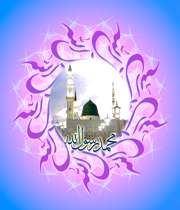Principle of Care for the Oppressed
(part 4)

This respect towards the poor could be seen all throughout his mission. In Medina it had another aspect since the day he stepped into this city until his departure from the world. The account of his entry into Medina says it all. The Noble Prophet (PBUH) left the Quba Mosque to enter the city on Friday. He was riding his camel. All the people, Muhajir (fellow migrants from Mecca) and the Ansar (those who assisted him in Medina), Jews, Muslims, disbelievers, women, men and children, all were following his camel. The women and children were singing and looked happy. Curious looks, anxious looks, horrified looks; all stared into the face of this stranger who had come to this city from his own tribe. There were many thoughts in the heads and many hearts were beating! The man on the camel passed the alleys, letting go of the bridle of the camel. The job ahead was so immense that the man on the camel could not make a decision by himself. The bridle of the camel was in hidden hands penning down the future destiny of the world.
As the rider passed through the dwellings of the Bani Salim bin Auf, the prominent men of the tribe, Otban bin Malik and 'Abbas bin 'Ubaydah, came forward and held the bridle, saying: O' Messenger of God! Stay with us as we have a fully equipped army that is invincible. The man on the camel, deep in thought, staring at the road ahead said in a decisive tone: “Open the way! It (the camel) is on a mission!” They opened way and the camel continued its trek. The camel passed through the dwellings of the Bani Bayazah. Ziyad bin Labid and Farwah bin 'Amr, along with the men of the Bayazah tribe stopped the camel, saying: O' Messenger God! Alight from the camel amongst us! We have a fully equipped army that is invincible. The Prophet repeated: “Open the way! It is on a mission!” The man on the camel continued to go. No one knew where the camel would stop, but everyone knew that the person, who would establish the biggest government on the earth in the near future and rule over the realms of Caesar and Chosroes, won't have servants and maids and won't fit in the boundaries of any family or tribe. The camel passed the dwellings of the big families of the town and the man who had all the eyes on himself rejected the call of all the masters of big houses in a decisive tone: this meant this man was the guest of the homeless. He didn't stop at the house of his next of kin and had the same response for his uncles. This meant he was relative to those with no next of kin. The people were bursting with joy. The camel kept going and the further he went from the house of the rich, the nearer he became to the people. When it passed the dwelling of Bani 'Uday, the carpenter and didn't' stop, the people realized that the man on the camel belongs to the host. After that every step the camel took, the nearer it became to the homeless people of Yathrib. The poor women, children and men and elderly who had never felt any pride were glowing with it now. The faceless crowd headed towards the man on the camel who didn't utter a word and deep thought oozed from his forehead. The camel was like a ship surfing on wild waves. The eyes of oppressed women, children, and youth, whose soul were on fire stared at this man and his camel who was a messenger from the spiritual world. His shadow fell on curtains of tears, shivered and disappeared. The picture and the look searched in the endless wave of the tears, wouldn't find each other and suddenly the picture cleared, shivered again and disappeared.
Suddenly the river following the man on the camel came to a standstill and wonder took over. What was going on? The camel was kneeling. Where? In a piece of land with a few palm trees there. Destiny had stopped the camel there.
Abul Ayyub, whose house was next to this piece of land hurried and took the baggage of the Prophet (PBUH). The holy Prophet asked: Who is the owner of this land? Mu'adh ibn Afra explained: It belongs to two orphans. Sahl and Suhayl, sons of Rafi' bin 'Amr who live with me. I will convince them to sell it.
The mission of the camel was over and the messenger of peace and justice had landed in the land of the oppressed. He set up his home and mosque there to become a blessing for the oppressed and make them honorable. He stayed with Abul Ayyub, who was the poorest man in Medina until the house and the mosque were completed. All during his mission the Noble Prophet manifested different aspects of benevolence towards the oppressed. He loved them and respected them and never allowed anyone to ridicule them or belittle them.
Source:
Behavior and Character of the Holy Prophet of Islam from Imam Khomeini's Viewpoint
Written By: Mostafa Dilshad Tehrani
Translator: Ali Shahbaz
Other Links:
Principle of Mercy and Blessings-Love and Affection